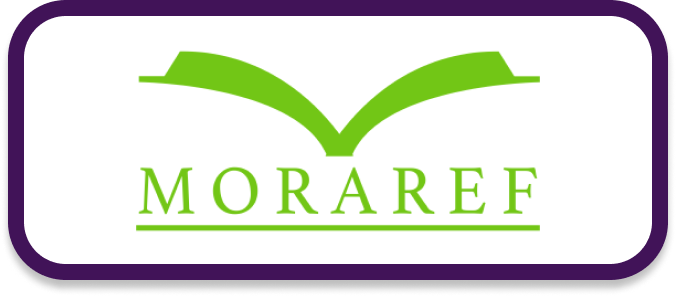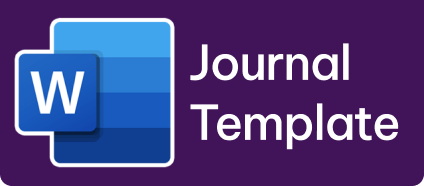FAKTOR-FAKTOR PENUNJANG DAN PENGHAMBAT DALAM PELAKSANAAN PEMBELAJARAN DARING (ONLINE) PPG DALAM JABATAN (DALJAB) PADA GURU PEREMPUAN DI ACEH
Abstract
Keywords
Full Text:
PDFReferences
Asep Suryana. (2005). Akreditasi, sertifikasi dan upaya penjaminan mutu pendidikan. Jurnal Administrasi Pendidikan, III(2), 1–14.
Desilawati dan Amrizal. (2014). Guru Profesionalisme di Era Global. Jurnal Pengabdian Masyarakat, 20(77).
Destiana, B., & Soenarto, S. (2014). Faktor determinan pemanfaatan tik dan pengaruhnya terhadap kinerja guru SMK di Kabupaten Gunungkidul. Jurnal Pendidikan Vokasi, 4(3), 285–299. https://doi.org/10.21831/jpv.v4i3.2555
Feri Irawadi at.all. (2019). Dampak Sertifikasi terhadap Profesionalisme Guru (Studi Pemetaan (PK) GPAI On-Line Tingkat SMA Kota Palembang). 251–260.
H.A.R. Tilaar. (2009). Membenah Pendidikan Nasional. Rineka Cipta.
J.W. Creswell. (2014). Research Design Pendekatan Metode Kualitatif, Kuantitatif dan Campuran. Pustaka Pelajar.
Kartini, K. (2005). Menyiapkan dan Memadukan Karir. Rajawali pers.
Koswara dan Rasto. (2016). Kompetensi dan kinerja guru berdasarkan sertifikasi profesi. Jurnal Pendidikan Manajemen Perkantoran, 1(1), 61–71.
Laird, D. (1985). Approaches to Training and Development. Wesley Publishing Company.
M. Ngalim Purwanto. (2012). Administrasi dan Supervisi Pendidikan. Remaja Rosdakarya.
Maria Ulfa. (2018). Kinerja Guru Sertifikasi. Bambu Kuning Utama.
Maria Ulfa. (2019). Manajemen Kinerja Guru. Bambu Kuning Utama.
Miles and Hubberman. (1992). Analisis data Kualitatif. Universitas Indonesia.
Muhammad Nur Rizal. (2017). Menghadapi Era Disrupsi. http://m.republika.co.id/berita/jurnalisme-warga/wacana/17/11/24/ozw649440-mengahdapi-era-disrupsi
Mustafa Kamil. (2003). Model-Model Pelatihan. Universitas Pendidikan Indonesia.
Nugroho, S. (2012). PROFESIONALISME GURU SD NEGERI SE-KECAMATAN. Varia Pendidikan, 24(2), 135–146.
Ridho, S. (2014). Strategi Peningkatan Profesionalisme Guru melalui Inservice training Education. At-Turas, 1(1).
Risma Istiarini & Sukanti. (2012). Pengaruh Sertifikasi Guru dan Motivasi Kerja Guru Terhadap KinerjaGuru SMA Negeri Sentolo Kabupaten Kulon Progo Tahun 2012. Jurnal Pendidikan Akuntansi Indonesia, X(1), 98–113.
Sugiono. (2016). Metode Penelitian Pendidikan Pendekatan Kualitatif, Kuantitatif, dan RD. Alfabeta.
Suryana., S. (2017). Permasalahan Mutu Pendidikan Dalam Perspektif Pembangunan Pendidikan. Edukasi, 2(1).
Swasto. (1992). Pengembangan Sumber Daya Manusia Pengaruhnya terhadap Kinerja dan Imbalan. FIA Unibraw.
Syaiful Sagala. (2011). Kemampuan Profesional Guru dan Tenaga Kependidikan. Alfabeta.
Tsai, T. L. C., Sing, C., & Lee, C. M. (2013). Identifying Science Teachers ’ Perceptions of Technological Pedagogical and Content Knowledge ( TPACK ). J Sci Educ Technol, 22, 325–336. https://doi.org/10.1007/s10956-012-9396-6
Usman, N. (2012). Manajemen Peningkatan Mutu Kinerja Guru: Konsep, Teori Dan Model. Citapustaka Media Perintis.
Zaki Mubarak. (2018). Pendidikan di Era Revolusi Industri 4.0 dan Problematika Pendidikan Tinggi. Ganding Pustaka.
DOI: http://dx.doi.org/10.22373/equality.v6i2.7735
Refbacks
- There are currently no refbacks.
Copyright (c) 2020 Lailatussaadah Lailatussaadah, Fitriyawani Fitriyawani, Erfiati Erfiati & Sri Mutia

This work is licensed under a Creative Commons Attribution-ShareAlike 4.0 International License.




























